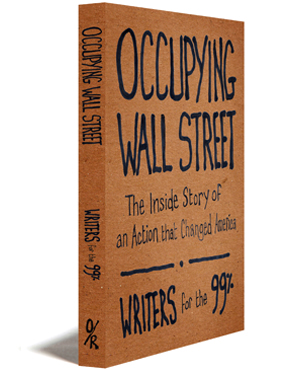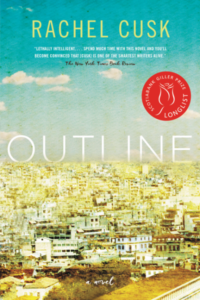 Occupying Wall Street: The Inside Story of an Action that Changed America by Writers for the 99%
Occupying Wall Street: The Inside Story of an Action that Changed America by Writers for the 99%
Writers for the 99% is a collective organized during the Occupy Wall Street action to write an insider account of the movement. All the contributors are either participants or supporters of Occupy Wall Street. They have given us a text that is far from perfect, yet is essential in its tracing of the story of the movement that inspired a new rhetoric in America.
Occupying Wall Street is organized into themed chapters (closer to essays) which provide glimpses at the trajectory, the daily life or the various people and groups of Occupy Wall Street. I liked the division of the chapters into distinct topics, because each one offered a perspective adding a new layer of understanding. “The Art of the Square” explores how music, poetry and other art forms were both inspired by Occupy Wall Street, but also part of the action. “The Media, Occupied” is an analysis of how mainstream media reacted to and reported on Occupy Wall Street throughout the two months in Zuccotti Park. (From media blackout/ignorance in the first weeks, to holding ten per cent of the American media space in mid-October 2011, to media blackout again when the eviction took place in November 2011). “Living in the Square” took the reader on a walkabout through the square, examining the spaces established (kitchen, library, info booth, etc.) and the distinct feel of the zones, particularly the ideological divisions between the eastern and western ends of the park. As a whole, the chapters give a nuanced picture of the movement, its goals, its enthusiasms.
Every page of the book is filled with direct quotations from occupiers who lived these events. For me, this was the essential strength of this book, as it recorded the words of those in situ, rather than after the fact, when memories fail and distort. During the occupying of Brooklyn Bridge—when mass arrests took occupiers by the busload to jail—a police officer said, “I want you guys to know…I totally know where you’re coming from. My family was fucked over by foreclosures and predatory loans and the banking industry being twisted…but I can’t be with you guys because of this badge.” What a great moment, when a member of the police force, with whom Occupy Wall Street was constantly struggling to maintain ground in Zuccotti Park, admits the same ideological goals as the occupiers.
The one weakness I found with this book was that the multitude of authors brought textual inconsistency from chapter to chapter, so that some chapters crossed over each other too much and others not enough. However, as acknowledged in the Introduction, the book was written starting in October 2011, and was published in February 2012. That is an incredibly short time to produce a book. I felt that the needs of a closer edit where superseded by the need to publish this highly relevant book expeditiously. (Also, I loathed how em dashes and en dashes were used interchangeably throughout, even mixed in the same sentence, and sometimes en dashes where even closed up to the surrounding words. That just bugged me. But again, time constraints, I understand.)
But small considerations aside, if you are at all interested in understanding Occupy Wall Street, I feel this an essential text, bringing of the moment current history to light from the voices of participants themselves.
I’d love to hear what other readers felt about this book after reading it. Please leave me a comment below.
Other reading: You may also be interested in reading another book published by OR Books, Tweets from Tahrir. Here is my review.









